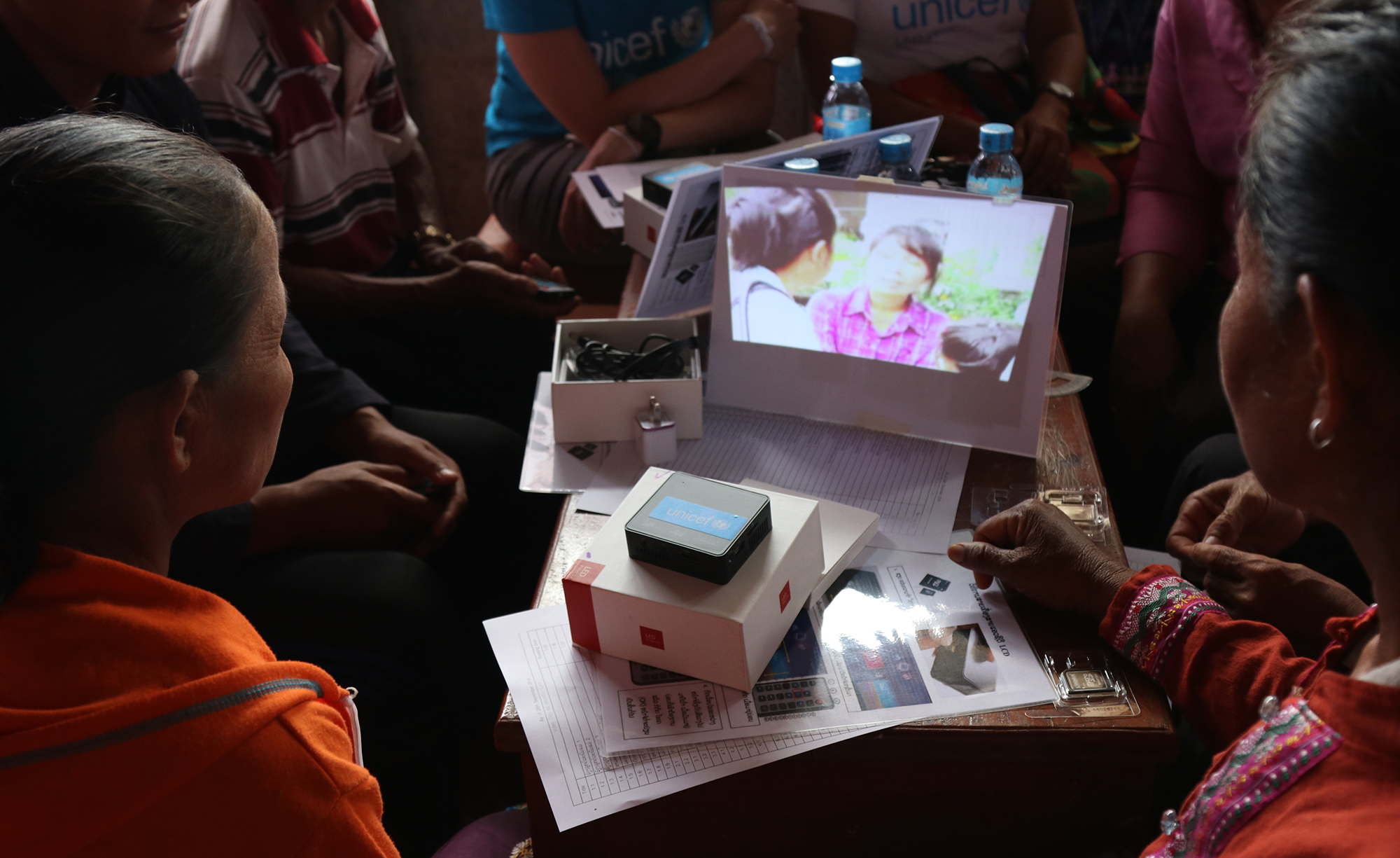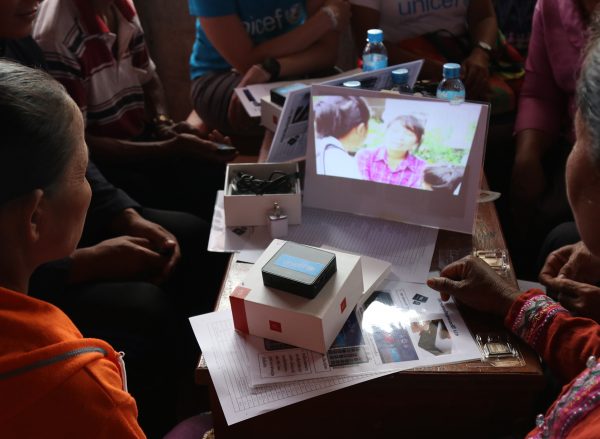UNICEF and MMG have partnered for the last five years to improve the health of babies and children in Laos through the 1000 Day Project. The first 1000 days of a child’s life are critical for ensuring the healthy development of babies and children. The project continues to deliver lifesaving nutrients to malnourished infants and supports mothers with health care and education on nutritional practices.
In addition, new initiatives are being piloted to improve data collection and monitoring using mobile phone technology. UNICEF has learned through experience that problems that go unmeasured often go unsolved and they use monitoring data to inform national and global decision-making with the objective of improving children’s well-being.
In a country where many people live in remote areas, access is a challenge even for delivering what we in Australia might consider to be basic healthcare. As access is a challenge, so is the collection and reporting of data that is crucial to monitoring and tracking progress.
As 90 percent of people in Laos have a mobile phone, this technology has been tapped into to facilitate the pilot projects. It includes the use of pocket projectors that provide healthcare information to village health workers via an SD card which they can then share with the community and enables them to report back in real time.
The second pilot underway is the use of Interactive Voice Response (IVR) which is an innovation that enables real-time monitoring of health and nutrition outreach via short phone calls made by health centre staff to a toll-free number. An IVR system prompts them on what to report, for example the number of children who have been immunised. The key benefits of the IVR are that it allows the health workers to immediately provide an evaluation of the what kind of health care service is needed in each location and allow enough staff, support and training to these regions to reach the most people with high quality care. It also provides data they can share with the government to prioritise health care needs in each region.
Pictured: Naluang Yai Village community facilitators demonstrate the new pocket projectors.





